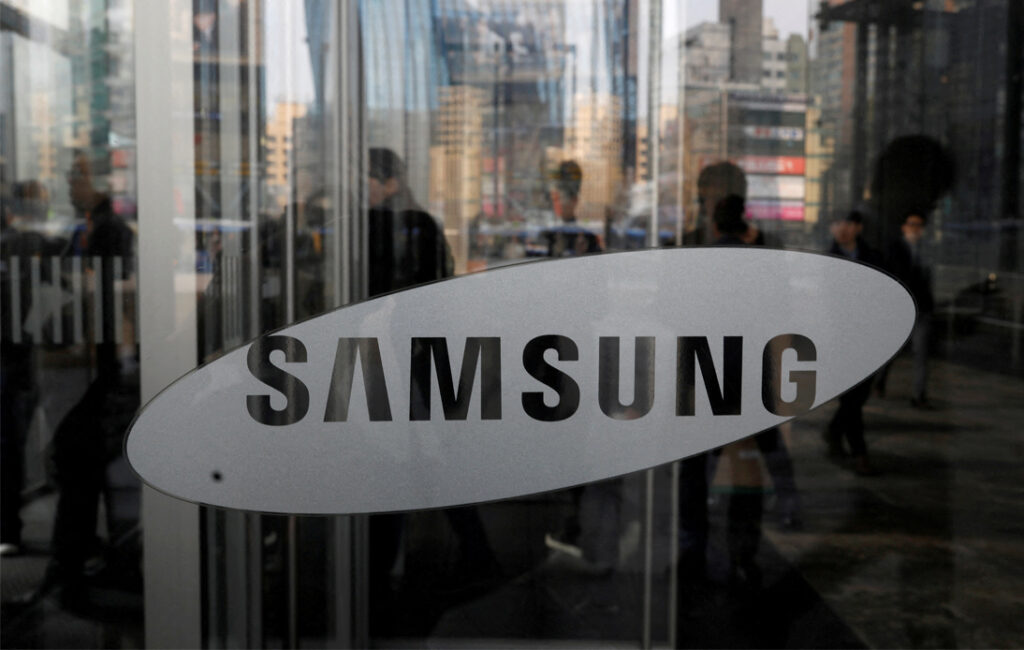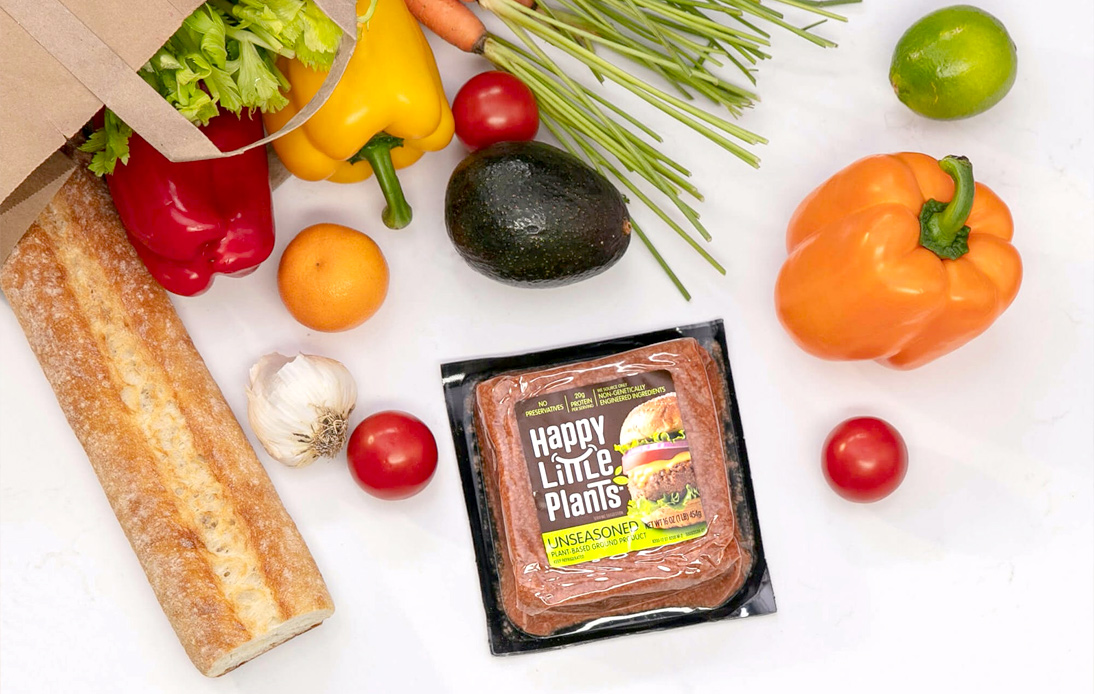
By 2024, the plant-based food market will reach US$480 billion. As vegan, vegetarian, and just healthy diets gain popularity, meat alternatives are becoming one of the fastest-growing sectors, and this year, sales sped up on par with the global coronavirus pandemic.
So, what’s going in on in this market? Is it time for plant-based diets to hit the mainstream?
The answer appears to be a resounding yes, but it’s more complicated than that. For Asian countries, where plant-based diets are much more prevalent than in the West, the transition has been smoother, but there are still some obstacles to overcome.
What Makes People Adopt a Plant-Based Diet?
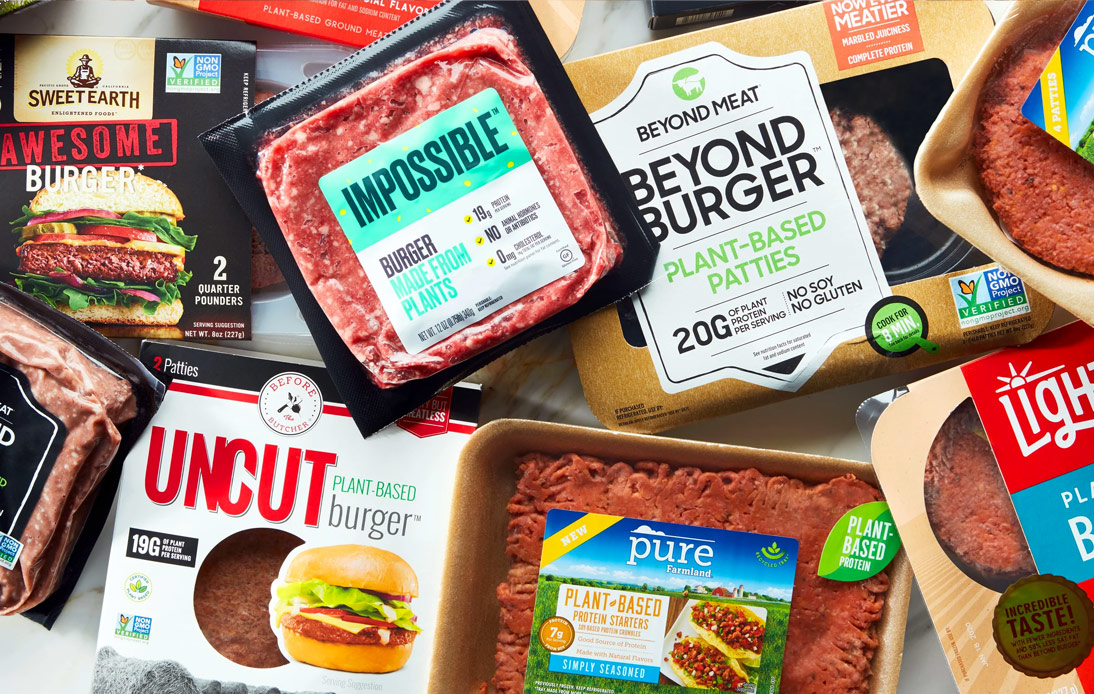
A variety of choices of plant-based protein are on the market | YUMCREATIVE
The meat industry is the largest global warming pollutant in the world with outrageous gas emissions, the rain forests are being blazed for cattle raising grassland, and the oceans are over-fished.
It’s easy to see why the new generation of consumers, those holding the largest spending power, are looking for sustainable food alternatives and plant-based diets.
Health is also a moving factor behind the plant-based craze. As a society, it seems we are finally tired of processed foods, preservatives, added sugar, and artificial colorings.
All-natural is not a trend anymore but a lifestyle which has led many consumers to find alternatives in the supermarket shelves that might not be what they have consumed a few years, or even months ago.
Today, the matter is not black and white anymore. The problem with going vegan or vegetarian is that it requires a big commitment, and that’s something the new generation is not ready to undertake.
Many people now consider themselves flexitarians.
Everyone’s looking to eat better and healthier, but there’s not much room left for restrictive diets. People want to make their own choices without feeling tied up.
Consumers are more open to try plant-based meat alternatives. Omni Meat, an all-purpose, plant-based meat, and Quorn, a fungi-based microprotein, are more popular than ever, but people might as easily have a regular beef burger when going out with friends.
The Big Companies Are Capitalizing On The Trend
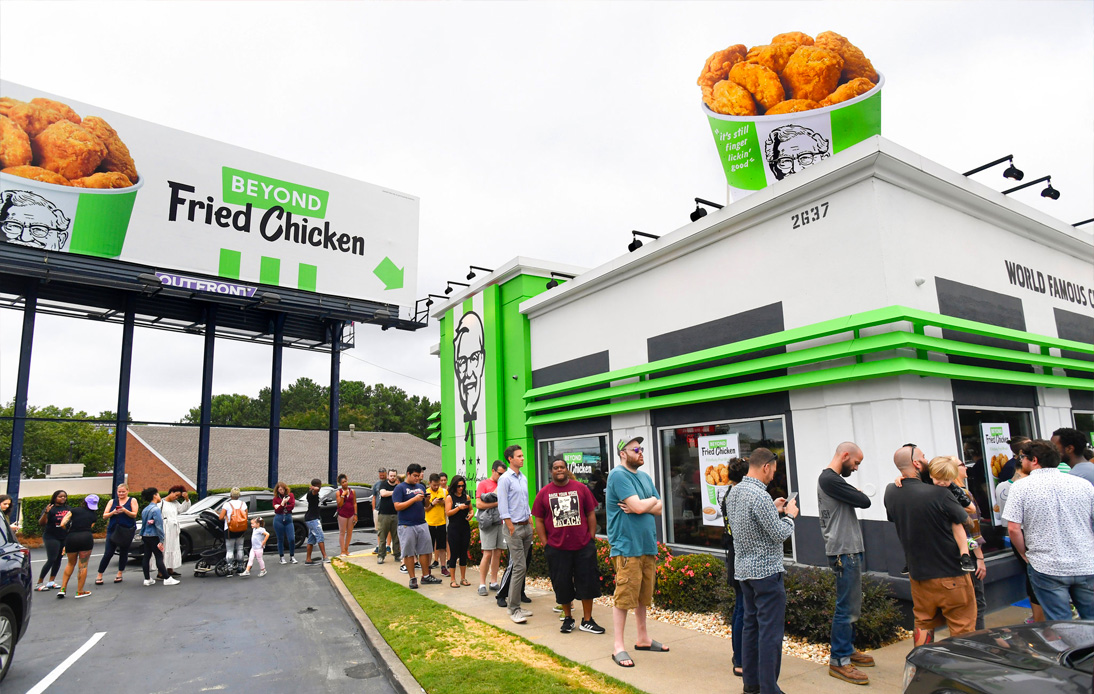
People line up in the US to give KFC’s Beyond Fried Chicken a try | COURTESY OF BEYOND MEAT
Consumers’ needs and wants are one thing; they provide the demand for plant-based foods, all-natural products, and meat alternatives, but there has to be a balancing offer to see a real change in the market.
Large companies worldwide are finally investing in plant-based product lines, probably not for the benefit of their consumers or the planet, but for the significant gains that come with the unexplored market.
KFC sold a plant-based chicken burger in the UK as a trial run last year, and it was sold out within days and Danone just purchased the plant-based yogurt alternative company Alpro.
Papa John’s Pizza sells a vegan hotdog pizza with positive results, and Burger King is capitalizing in the already popular Impossible burger in some of their products.
Blue-chip companies dip their toes judiciously into the non-meat market, but at a restaurant level, chefs are all-in on the trend.
Thailand is no stranger to vegan-friendly concepts. From local eateries like May Veggie Home to trendy restaurants, including Ruyi Vegetarian or Veganerie, there are plenty of non-animal meals in the country, a growing trend in the region.
South-Asian countries have it easy, opposite Western diets where vegetables are mere garnishes, Asian food has always been about fresh, all-natural, and colorful vegetables and fruit.
Could Asia Lead The Way In The Plant-Based Revolution?
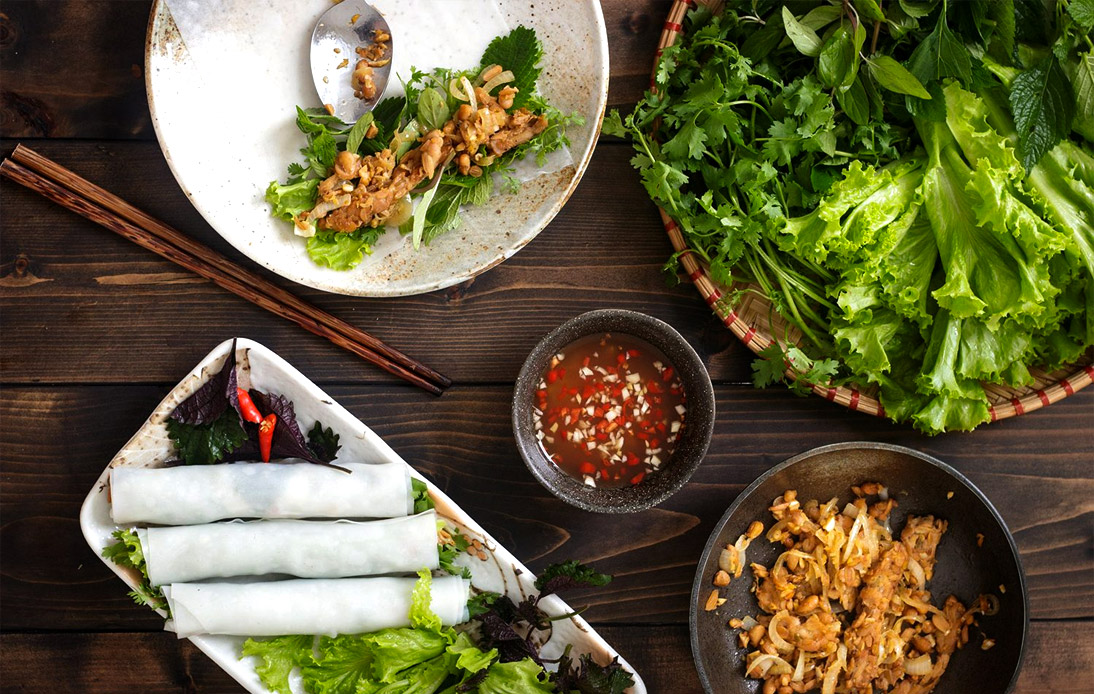
Vietnamese cuisine is known to have many vegan and vegetarian options | YUMCREATIVE
It already has, and it has done so for decades. Perhaps it’s the religious practices permeating culinary traditions everywhere from India to Japan, or maybe it’s the strong culinary roots that have prevented the East from being influenced menacingly by the West’s fast-food lifestyle.
Either way, eating healthy plant-based food in Asia has always been easier than in the West.
Tofu and tempeh, both soy-based proteins, are widely available; peas, chickpeas, and lentils play their part well. Of course, chicken, pork, fish, and to some extent, beef have always been well represented in the Oriental kitchens.
Still, with a new flexitarian approach, one can see more options in Asia to eat healthily than anywhere else on the earth.
Do people in China, Vietnam, or Thailand really need to disguise their plant proteins as beef? This might be the real question behind the current plant-based trend.
While in the West producers are doing all they can to make their plant-based meat alternatives look and taste as close as possible as the real deal, plant-based proteins are embraced for what they are in Asia. If you’ve had a bowl of steamed edamame, you know what we mean.
How Did the COVID Crisis Change the State of Affairs?
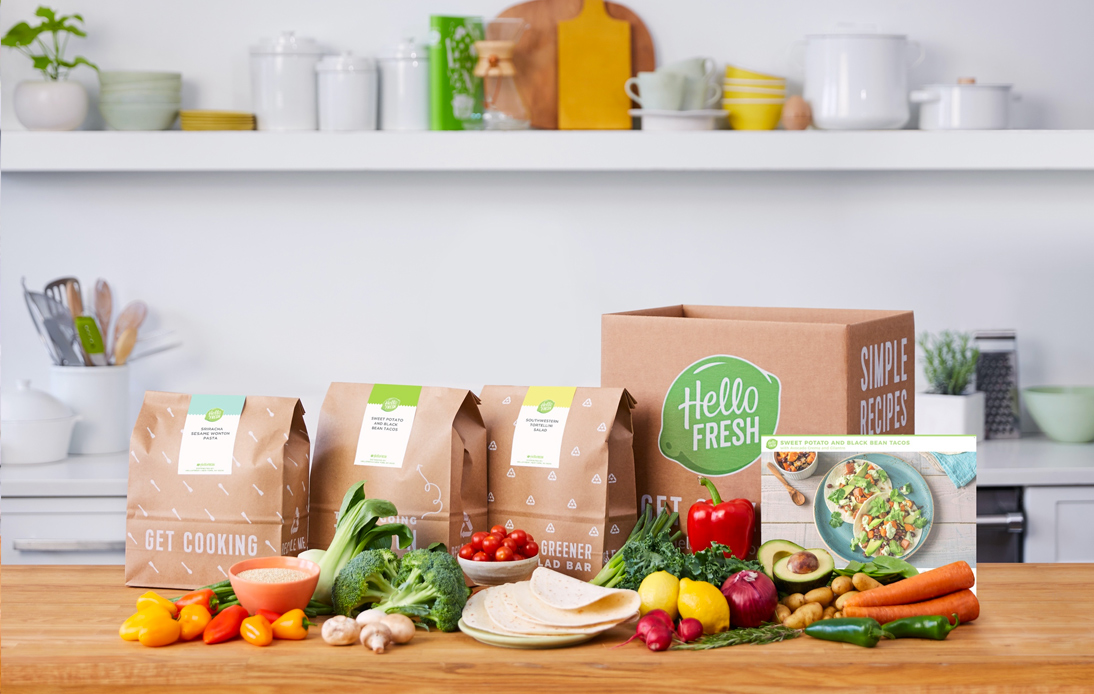
Plant-based meal delivery services have thrived during the COVID-19 pandemic | Hellofresh
The coronavirus pandemic has had a direct impact on the plant-based food market at many levels.
For starters, restaurant shutdowns, social distancing, and confinement have led people to cook at home more often than ever. Actually, people are cooking at home more than the past generation ever did.
Even if consumers source their food outside, they do it from a neighbor or a local eatery. The trend has shown that it’s not fast-food or processed food delivery alternatives that have grown the most, but traditional food, which is healthier and fresher.
People are on top of what they put into their bodies in an ever-growing social consciousness that has said ‘no more’ to unhealthy and unsustainable food.
The COVID crisis might just be the tipping point that’ll change the balance of what we eat towards more sustainable and nutritious alternatives.
There’s a Real Change Coming Your Way
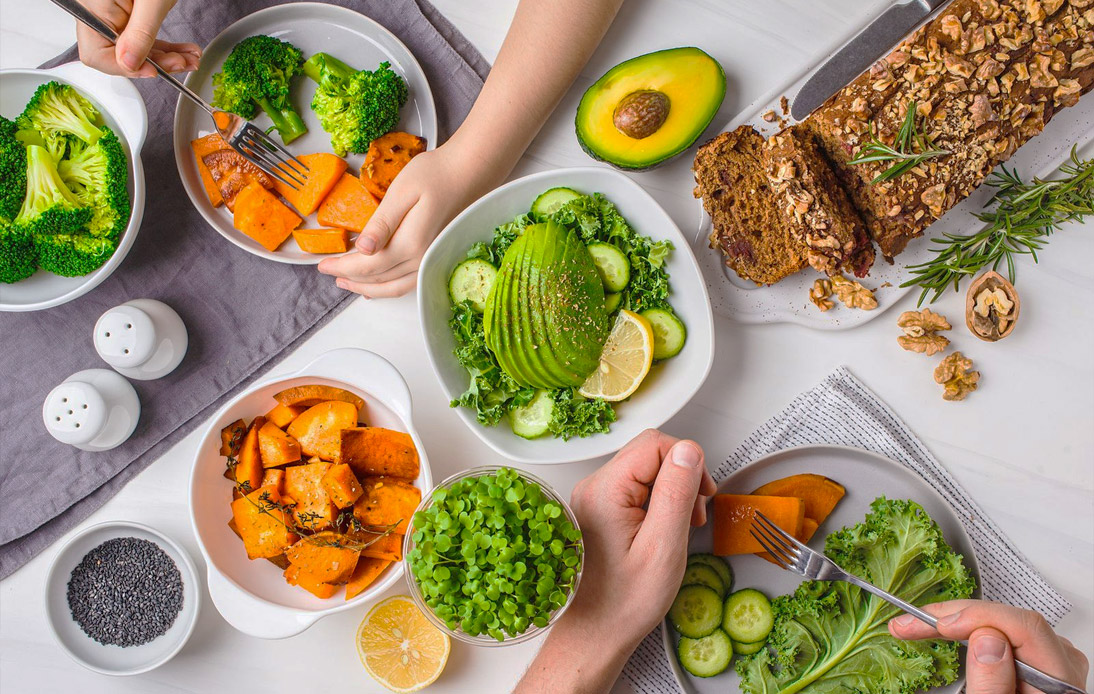
A vegan diet may reduce the risk of cardiovascular disease and various types of cancer | YUMCREATIVE
The time is right, the non-animal proteins are here, both traditional legumes and modern takes of guilt-free meat alternatives.
Consumers and producers are ready to take the next step, and they seem to understand each other finally.
Once the COVID pandemic is controlled, we’ll be living in a new world where we all must play our part, for our health and the environment.
Hopefully will find ourselves in a better world where plant-based food is not a conversation topic but the new normality. Are you ready to join the revolution?






